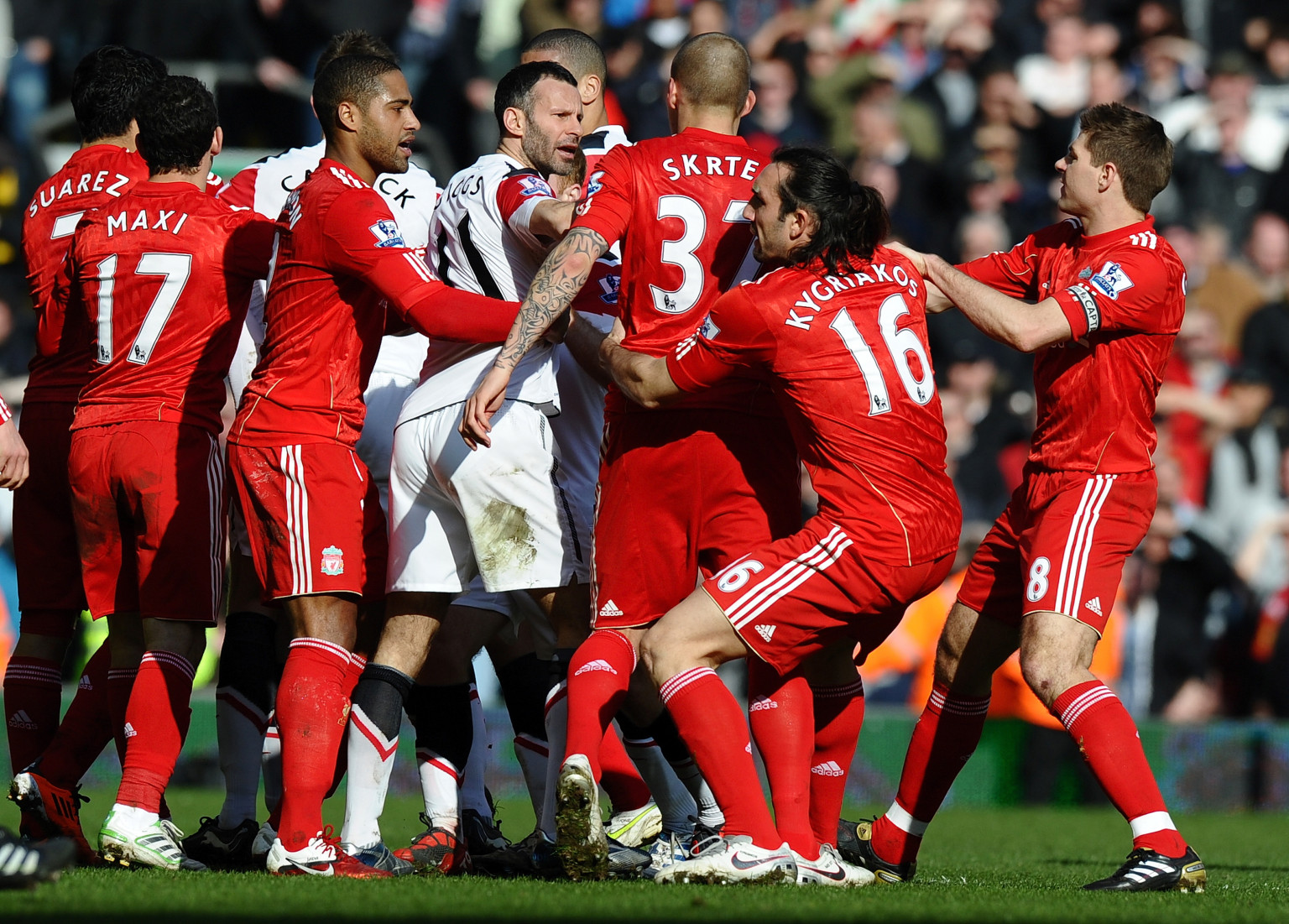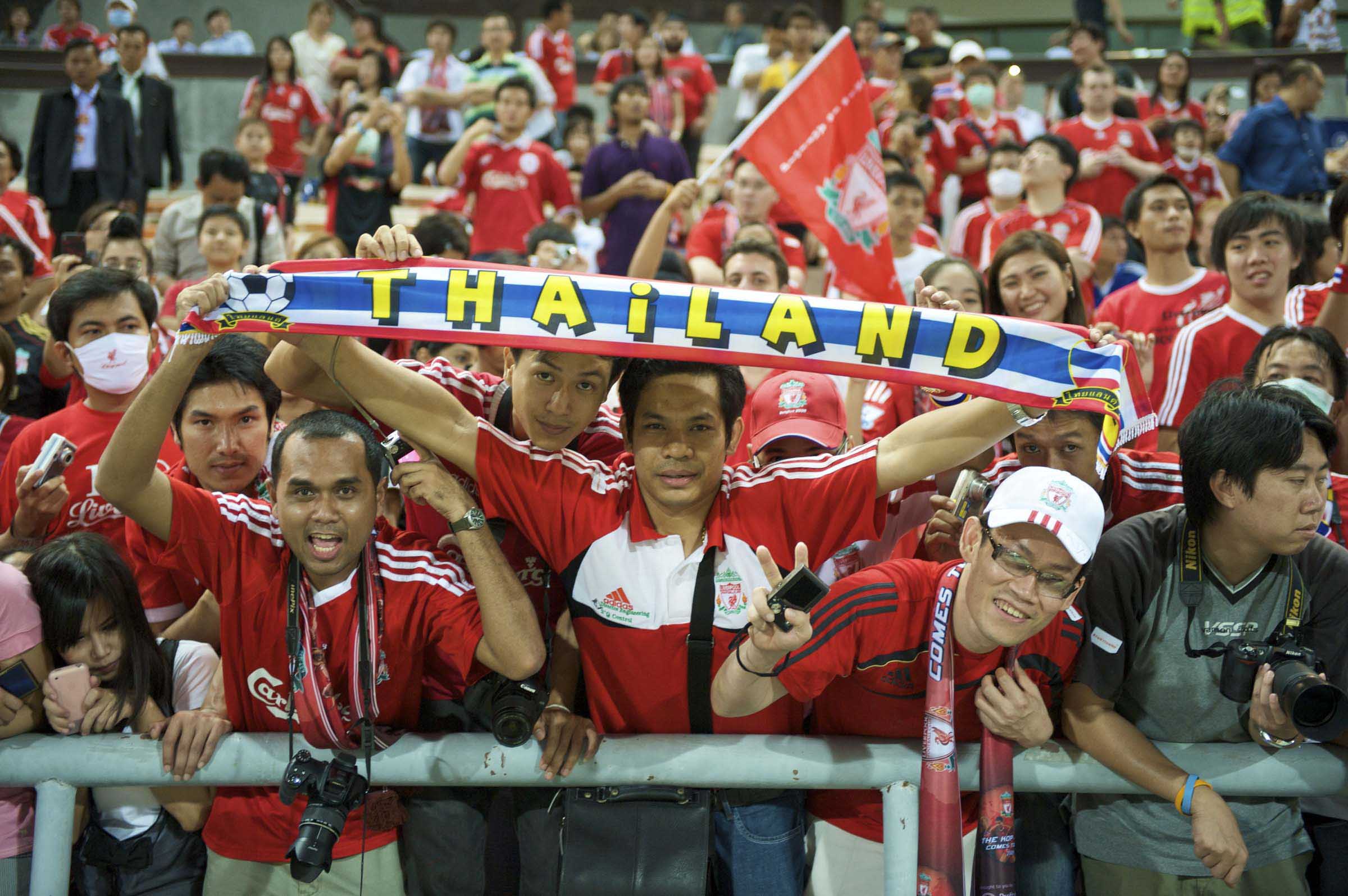

Share
10th March 2016
06:48pm GMT

 Liverpool versus Manchester United is one of the biggest games in the world. This is largely because of the success both clubs have enjoyed through the years, compounded by the fact that the respective fans detest each other. Usually football hate, but often real-life hate.
It is an animosity forged of civic contempt. From the days of Manchester being a grubby Cottonopolis to Liverpool's cultured white-collar port. The famous expression, 'the Liverpool gentleman and the Manchester man', was deliberately condescending to the latter.
But the building of the Manchester Ship Canal changed the dynamic forever. The industrious Mancs cut out their entrepreneurial Scouse middle-men, and made wealth of their own. It cemented the needle between two proud Northern giants. And then came football.
The fact that such deeply-embedded bitterness endures is at once ridiculously and brilliantly parochial. It goes far beyond professional rivalry or sporting competition; it's petty and quite often childish. That Corleone mantra of things being purely business has no place here.
Liverpool versus Manchester United is one of the biggest games in the world. This is largely because of the success both clubs have enjoyed through the years, compounded by the fact that the respective fans detest each other. Usually football hate, but often real-life hate.
It is an animosity forged of civic contempt. From the days of Manchester being a grubby Cottonopolis to Liverpool's cultured white-collar port. The famous expression, 'the Liverpool gentleman and the Manchester man', was deliberately condescending to the latter.
But the building of the Manchester Ship Canal changed the dynamic forever. The industrious Mancs cut out their entrepreneurial Scouse middle-men, and made wealth of their own. It cemented the needle between two proud Northern giants. And then came football.
The fact that such deeply-embedded bitterness endures is at once ridiculously and brilliantly parochial. It goes far beyond professional rivalry or sporting competition; it's petty and quite often childish. That Corleone mantra of things being purely business has no place here.
 And yet the intensely local hatred of two English cities just over 30 miles apart is now global. The acutely provincial pettifogging has been exported to Oslo and Cape Town and Kuala Lumpur. So many corners of the earth now fight and bicker of different shades of red.
This attracts mockery from rivals and sometimes even a cruel sort of rejection from within. Many judge the validity of an individual's passion by the longitude and latitude of their birthplace. There's a pecking order of top redness, and you need to know your place.
It's never that simple. Of course there is a unique and special bond that someone feels for their local team; a bond which can neither be defined nor fully replicated. But the love that distant fans harbour for the likes of United and Liverpool is beautiful in its own way.
It involves cherishing and absorbing every outlet of coverage available. Waking up at obscene hours, quite often to the detriment and annoyance of loved ones, in order to witness the faraway flicker of quite often dreary fare. Hoping and praying that one day they'll visit.
And yet the intensely local hatred of two English cities just over 30 miles apart is now global. The acutely provincial pettifogging has been exported to Oslo and Cape Town and Kuala Lumpur. So many corners of the earth now fight and bicker of different shades of red.
This attracts mockery from rivals and sometimes even a cruel sort of rejection from within. Many judge the validity of an individual's passion by the longitude and latitude of their birthplace. There's a pecking order of top redness, and you need to know your place.
It's never that simple. Of course there is a unique and special bond that someone feels for their local team; a bond which can neither be defined nor fully replicated. But the love that distant fans harbour for the likes of United and Liverpool is beautiful in its own way.
It involves cherishing and absorbing every outlet of coverage available. Waking up at obscene hours, quite often to the detriment and annoyance of loved ones, in order to witness the faraway flicker of quite often dreary fare. Hoping and praying that one day they'll visit.
 That doesn't stop people poking fun. If an excitable fan from India professes love for United in a strong Mumbai accent, they are brutally mocked. When supporters from the Far East are spotted at Anfield, it is something to screen-capture and use as ammunition.
It is pointless and mean-spirited to suggest the regulars of a pub in Salford are truer followers of the famous Man United than the patrons of a shanty town shack in Kenya, daubed in crude depictions of Red Devils. A Scandinavian accent does not make someone a fake Redman.
To many around the globe, locality to Anfield or Old Trafford isn't a badge of honour - it's a blessing. They would do anything to be so close to something they so truly love. Being far away doesn't make them lesser fans; arguably they are more committed through necessity.
Liverpool versus Manchester United will always be a very local derby, but it is one made richer through global reach and popularity. Each game is a world event and that is to be celebrated. Manc or Malay, Scouse or Sudanese, they'll all be praying they sh*t all over the enemy the world over.
That doesn't stop people poking fun. If an excitable fan from India professes love for United in a strong Mumbai accent, they are brutally mocked. When supporters from the Far East are spotted at Anfield, it is something to screen-capture and use as ammunition.
It is pointless and mean-spirited to suggest the regulars of a pub in Salford are truer followers of the famous Man United than the patrons of a shanty town shack in Kenya, daubed in crude depictions of Red Devils. A Scandinavian accent does not make someone a fake Redman.
To many around the globe, locality to Anfield or Old Trafford isn't a badge of honour - it's a blessing. They would do anything to be so close to something they so truly love. Being far away doesn't make them lesser fans; arguably they are more committed through necessity.
Liverpool versus Manchester United will always be a very local derby, but it is one made richer through global reach and popularity. Each game is a world event and that is to be celebrated. Manc or Malay, Scouse or Sudanese, they'll all be praying they sh*t all over the enemy the world over.

Explore more on these topics: